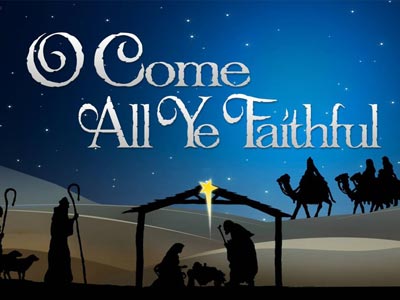-
God's Requirement: Faithfulness
Contributed by Terry Hovey on Aug 19, 2023 (message contributor)
Summary: 1Co 4:2 Moreover, it is required in stewards that one be found faithful.
God’s Requirement: Faithfulness
1 Cor 4:1-2
During his 2nd missionary journey Act 16:9 …a vision appeared to Paul in the night. A man of Macedonia stood and pleaded with him, saying, "Come over to Macedonia and help us." The change in plans and the direction of this mission trip led Paul and his companions to Philippi, Thessalonica, Athens, and ultimately to Corinth where he ministered for 18 months. He then left Corinth with Aquila and Priscilla, then left them in Ephesus where they met and instructed an “eloquent man” named Apollos. Apollos then went to Corinth and had a powerful ministry there.
Now, this letter that the apostle Paul wrote to the Corinthians, which has always been labeled I Corinthians in our Bibles, is believed to be his second letter to that church. In chapter 5, verse 9, Paul refers to a letter he had sent them previously which encouraged them to stay away from sexual immorality. So, with that understanding and the fact that this letter addresses that same issue again, along with several other problems he had heard about, we know that the church in Corinth struggled against the lure of the flesh.
At the very beginning of this letter Paul mentions news he had received from Chloe’s household about divisions that had arisen in the church. He wrote 1Co 1:11-12 …it has been declared to me concerning you, my brethren, by those of Chloe's household, that there are contentions among you. (12) Now I say this, that each of you says, "I am of Paul," or "I am of Apollos," or "I am of Cephas," or "I am of Christ."
So, Paul spent much of the first 4 chapters of this letter, dealing with this split in the body of Christ that focused on personal allegiances to certain teachers. Cliques had formed around certain apostles like Paul and Peter, or eloquent teachers like Apollos, so Paul emphasized that all of them were working toward the same goal. Each minister of Christ had a role to play, but that didn’t make one better than another. The minister of Christ is a servant, not a master, and as we see in the first couple of verses of the 4th chapter, they are also “stewards of the mysteries of God.”
1Co 4:1-2 Let a man so consider us, as servants of Christ and stewards of the mysteries of God. (2) Moreover, it is required in stewards that one be found faithful.
Now, let me try to translate this a little better. He’s saying, “This is how men should think of us. We are ministers of Christ. We are stewards of the mysteries of God.” The reason why he begins this chapter like this is because they were saying things like, “I like Apollos—I’m an Apollosite,” or another would say, “I like Paul—I am a Pauline,” or “I like Cephas—I’m a Cephonian.” They had formed factions around their favorite teachers, and this was creating division in the church.
The very nature of this kind of division, one that circled around a human teacher, is pride. Each group would tend to think of itself as better than another group and that their “truth” is better than someone else’s. This very thing is the reason why we have denominations today. Our own human individuality and the differences in the way we look at things, or interpret things causes us to congregate with others who have similar outlooks and to separate ourselves from everyone else.
But Paul is saying that this isn’t right. Instead of thinking that one teacher is better than another, we should rather view all true ministers of Christ as ministers or “hupe¯rete¯s” of Christ. That Greek word, huperetes, means under-rowers. And to understand what an under rower is, I want you to think about a movie you might have seen in years past that had ancient wooden ships with a couple rows of oars sticking out the side of the ship which propelled that ship wherever it needed to go. On the top deck, the ship would have several rows of men sitting on benches, working at the oars. Sometimes these men would be part of the crew, sailors who had signed onto the ship and were paid in some way for their service.
But if the ship was large enough, below deck would be other rows of men sitting on benches and doing the same thing. These were the under rowers, and they had the lowest of the low jobs on a ship. They were the lowest of the slaves who worked under the worse conditions imaginable. Paul is saying that true ministers of Christ were merely under rowers. They’re not lords. They’re not masters. They are not anything in themselves. They are merely rowers, slaves who are obedient only to the Lord Jesus Christ.

 Sermon Central
Sermon Central



